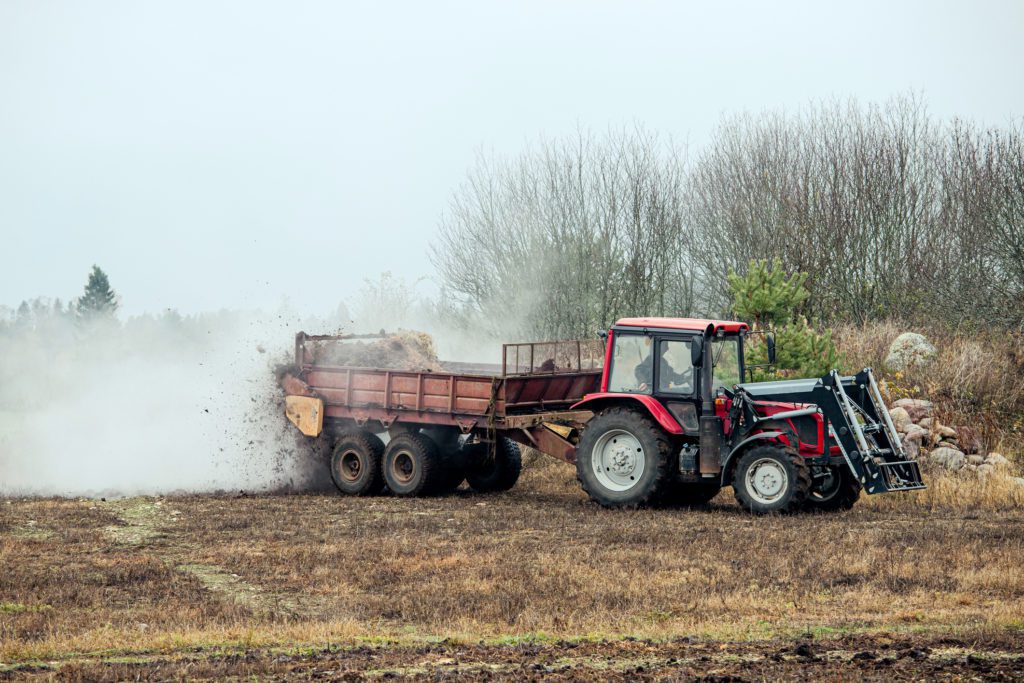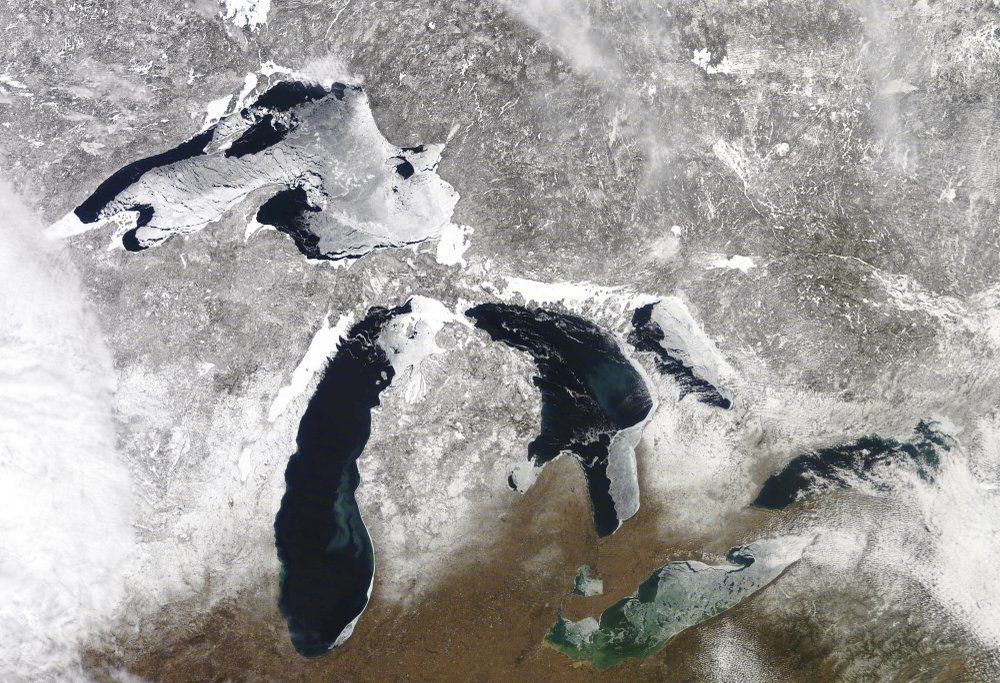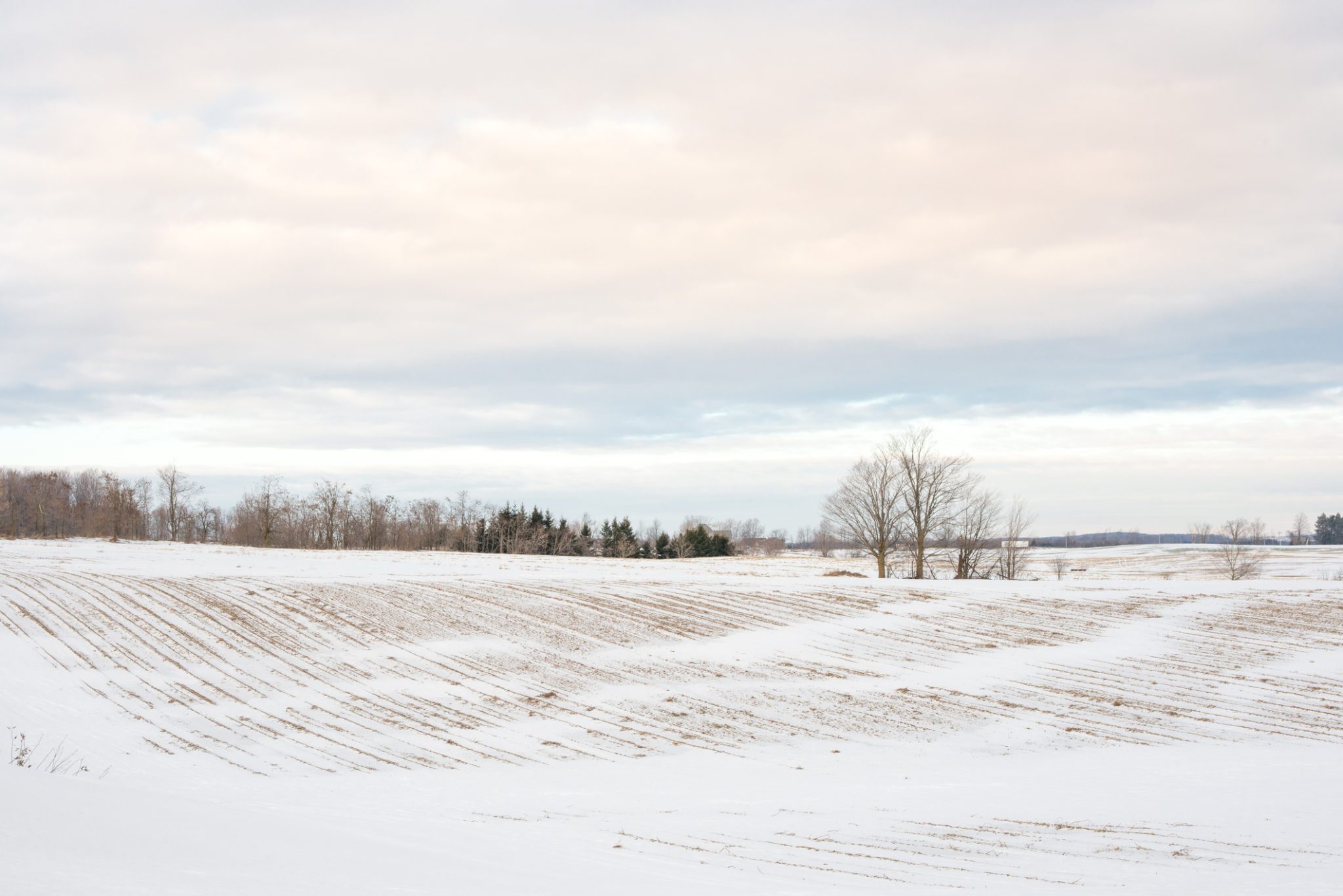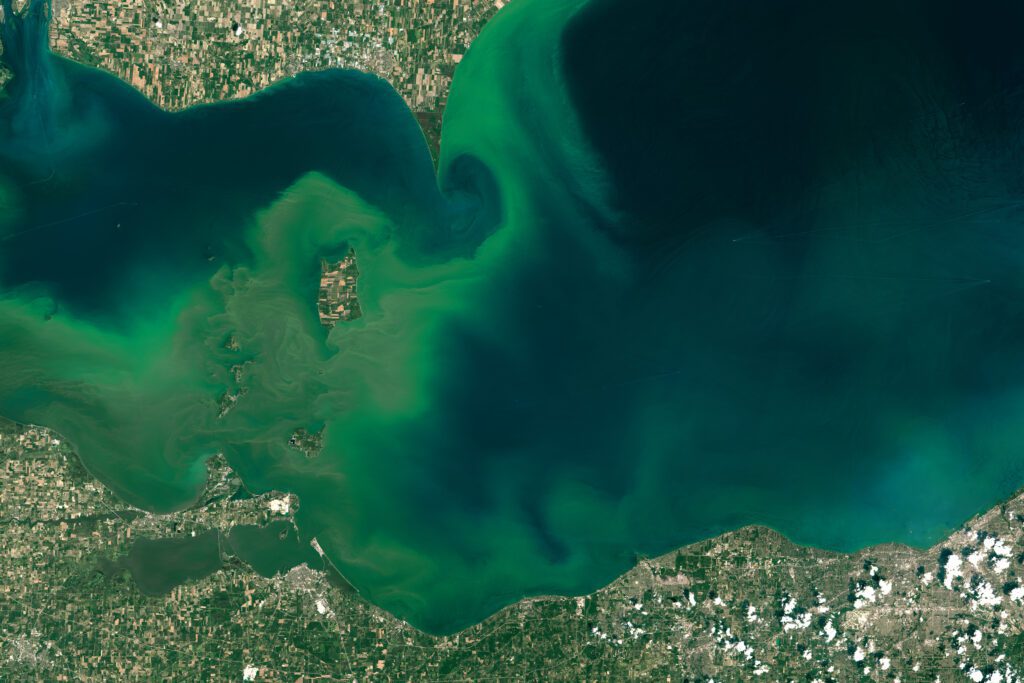If you’re a reader of our blogs or a lover of Lake Erie, you may already know that excess amounts of fertilizer are making their way into our waterways and are a key culprit in contributing to toxic algae blooms in Lake Erie and other freshwater bodies. Some of these fertilizers are chemicals, but some are just old-fashioned manure.
Using a natural fertilizer such as manure is a good practice – but there are still some rules that need to be followed to minimize negative impacts on the environment.
Fertilizer management best practices are called the “4 Rs.” Applying the right fertilizer source at the right rate, at the right time, and in the right place – are considered the rules of thumb for fertilizer application. These rules apply to manure as well as chemical fertilizers. And when it comes to applying manure, winter is the worst time.
What are the risks of winter spreading?
Winter spreading of manure is a practice that is under intense scrutiny because of the elevated risks for nutrient losses and its effect on water quality. The risk of runoff to surface water increases when applied on frozen or snow-covered ground. Frozen soils have limited, or no infiltration, so immediate runoff occurs if rainfall or snow melts before the soil thaws. With winter applications, no growing crops are available to absorb the nutrients.


Winter spreading of fertilizer is actively discouraged within the agricultural community and by the Ontario Ministry of Agriculture, Food, and Rural Affairs. However, it still occurs, and the practice of winter spreading is not only inefficient but also harmful to the watershed.
One of the main reasons manure is applied in winter is due to insufficient manure storage capacity. Therefore, increasing manure storage capacity is a simple way to alleviate much of the need for winter spreading. A more heavy-handed approach taken by some governments is to ban winter spreading altogether to try and enforce full compliance within the farming community.
What protections exist in Ontario to protect the Great Lakes from agricultural runoff and nutrient pollution?
Several pieces of legislation exist in Ontario that make it an offence to allow manure to enter waterways. The main pieces of legislation are the Environmental Protection Act, the Ontario Water Resources Act, and federally, the Fisheries Act. The Nutrient Management Act regulations are also most restrictive for winter applications. Farmers are also required to follow nutrient management plans when fertilizing crops and managing animal waste, which includes ensuring enough storage capacity for manure.
Despite these laws, however, excess nutrients are making their way into the watershed year-round, including in the wintertime. Only a limited number of farms that produce and use manure are included under the requirements of the Nutrient Management Act and its regulations. Governments are also relying too heavily on education and outreach to ensure that farms self-report whether they meet the conditions set out in the regulations. In the past, it has also been found that in Ontario, the Ministry of Agriculture has not followed up on issues of non-compliance and rarely used punitive measures – such as issuing offence notices – that may result in fines set by provincial courts.


What more needs to be done?
These weaknesses in the Nutrient Management Act contribute to year-round issues with nutrient losses and runoff, including in the winter months. All of this contributes to a deteriorating situation for the health of the Great Lakes and the toxic algae bloom issue that plagues Lake Erie annually. Governments need to strengthen the regulations requiring farms to have nutrient management plans. For the farms that do require plans, greater monitoring and enforcement of compliance are required.
Every year, scientists from NOAA and the Great Lakes region warn us that Lake Erie is approaching a tipping point, and if we don’t get our act together in the near term, we could lose one of our greatest global treasures. Bringing an end to the winter spreading of manure is one of the critical actions we need to take if we want to avoid this devastating loss.







